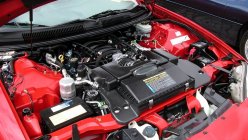How hot weather affects your car’s performance
Where ever you are in the world today, it’s pretty obvious that summers are getting hotter. And now that we’re fast approaching that season of sweats, many of us will be going on long or short road trips to Baguio, to some beach in Quezon province or Batangas, or to visit relatives in some other far-flung province.

If you're planning to do this with no AC, then you're screwed
For car owners, they’ll be using their beloved rides to reach their destinations. Even those heading for other islands. Road trips are fun in summer after all.
There’s a big but though; the temperature. Why? Because like humans, cars can be affected by high temperatures.
How?
Well, it can affect a whole lot of stuff on your car which in the long run can also take a toll on its performance.
So before planning your trip this summer, take a seat, get comfortable, and read on to learn how hot weather will affect your car and its performance.
1. Car batteries
If the weather is hot enough, then there’s a chance that your batteries will be adversely affected. That’s because car batteries are composed of acid and water.
The water, of course, evaporates faster as the temperature gets higher, and without water, the lead plates of your battery will get exposed. So, in short, your car’s batteries will also get “thirsty” and it will weaken its charge.

If the weather is hot enough, then there’s a chance that your batteries will be adversely affected
While water evaporation is a normal thing with car batteries, extremely hot weather can “pre-age” it. This is called “heat deterioration”.
Apart from that though, hot temperatures brought about by hot weather will also speed up corrosion. It’ll also speed up battery deterioration and in some extreme cases, your battery will start leaking.
Typical signs of a failing battery include slow cranking of the engine, lower than normal fluid levels, leaks, the battery case is swollen or warped, check battery light is on, and your car’s lighting is not as strong as normal.
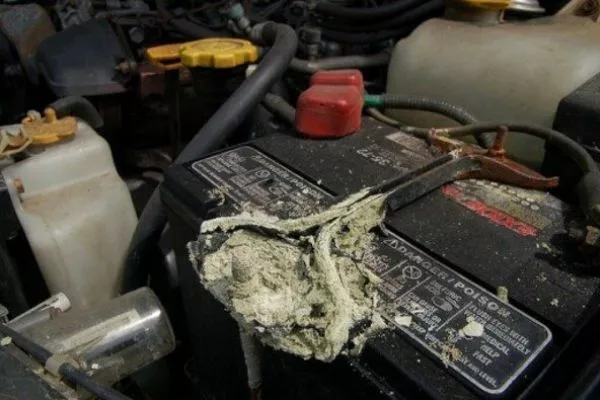
This is what corrosion on a car battery looks like
How to keep your car battery safe in hot weather
- Keep the top of your battery and its posts clean. Some debris is conductive and will drain it of its charge.
- For long trips, this summer, occasionally make stops and check the battery posts, and the battery itself. Do park in the shade when you do so.
- For many car models, the battery will have this protective barrier positioned in a way that shields it from the engine. Make sure that it’s still there and make sure if it's still in good condition (i.e. it has no holes)
>>> Recommended for you:
- A driver's guide in choosing the right battery brand in the Philippines 2020
- How Long Do Car Batteries Last: The Numbers and The Factors
2. Oil
Apart from the radiator, another thing that manages temperatures in a car’s engine is the oil. Summers, however, are becoming hotter as such, thermal breakdown comes into play.
This happens when the heat naturally generated by a car’s engine causes a chemical reaction in the oil. The oil becomes less viscous and will then be less efficient in lubricating your car’s internals.
Another problem that thermal breakdown causes are burning oil. This, in turn, can cause faster deposit buildup which will ultimately be harmful to your engine.
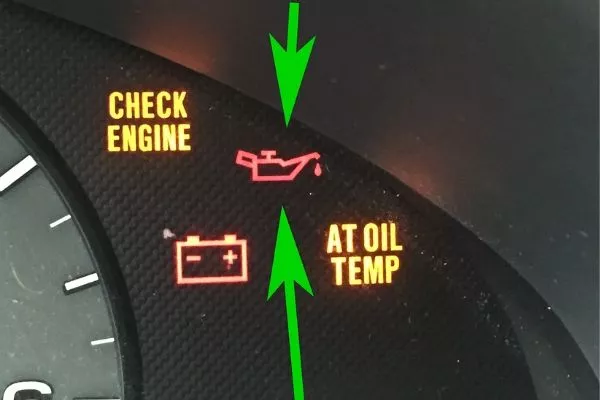
A lot of modern cars have check engine oil symbols on their gauge clusters
Note that thermal breakdown also occurs in transmission fluid.
So how do we fight this?
- Follow the recommended oil change interval
- When driving long distances in warm weather, check your oil levels when stopping for breaks. If it falls below normal levels, top it up.
>>> Suggested article:
- Car Engine Oil Analysis: What’s your Engine Oil Telling You?
- 5 signs to check if your car needs an oil change
3. Melting hoses and pipes
On most modern, mass-production cars, pipes and hoses are usually made out of rubber and plastic. Those are relatively affordable while also durable.
However, they do have melting points and sometimes extremely hot weather can do a number on them. This is especially true when they come in contact with the hot metal parts of the engine. Metal, after all, conducts heat.
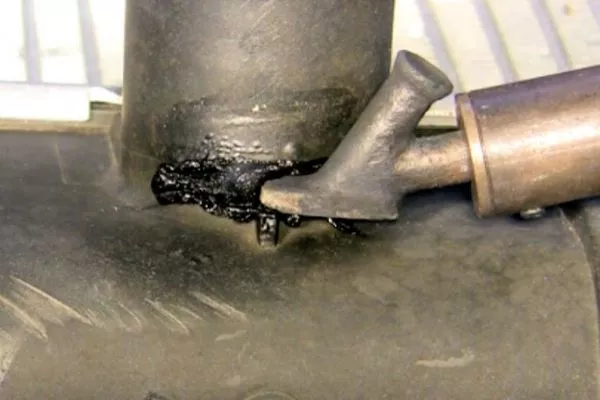
If the hose has a hole, then you'll really need to replace it
As a result, these hoses will either loosen up and disconnect, or worse will leak. This is especially true and especially bad when it concerns those pipes and connections to the radiator, the main part of your car which dissipates the heat generated by your car’s engine.
The end result of this is engine overheating. Read our guide on how to deal with car overheating.
How to prevent this from happening?
- Check the route of your car’s radiator pipes. If they’re touching something that’ll go hot in normal engine operation, try to re-route them with the help of a radiator specialist.
- Use the right kind of hoses.
- Replace very old hoses and pipes.
>>> Just in case: 7 tips to find reliable auto centers in the Philippines for car overhaul
4. Cooling system
When driving on hot weather, your car’s cooling system will work harder. It’s this part’s job to regulate temperature after all, so if the ambient temperature outside is extremely hot, then it’ll use up more coolant.
Cooling systems will also work harder when driving at low speeds. That’s because less air will flow through the radiator fan.
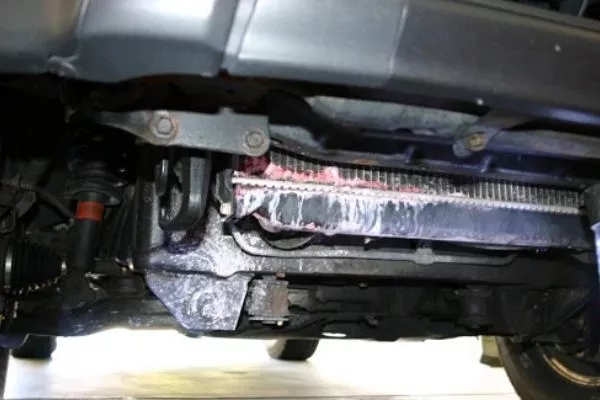
Here's what a radiator leak looks like
To prevent overheating, make sure your radiator is filled up with the right coolant. Also, check the condition of your radiator itself.
5. Tires
Like most of your car’s parts, tires and hot weather don’t mix. This is because the heat causes the air inside the tire to expand. This, of course, causes over-inflation and faster wear and tear of the tire. Also, in some extreme cases, this will cause bulging.
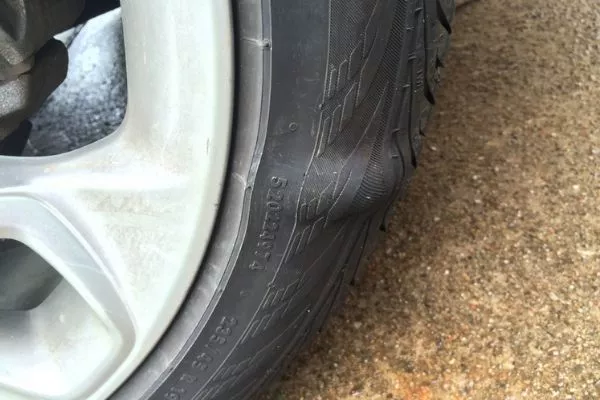
An example of a tire bulge
To avoid bulging from happening, do check your tire pressure every other day. If you’re driving long distances on a particularly hot day, do check tire pressure every time you make a stop.
>>> Grab your attention: Different types of tire pressure gauges and which is the best to choose?
6. Less horsepower
As we’ve discussed in countless articles before, an internal combustion engine requires three things to run; spark, fuel, and air.
Now if you’ve paid attention to your high-school science class, heat, i.e. the hot weather, will cause air to move faster and become less dense.
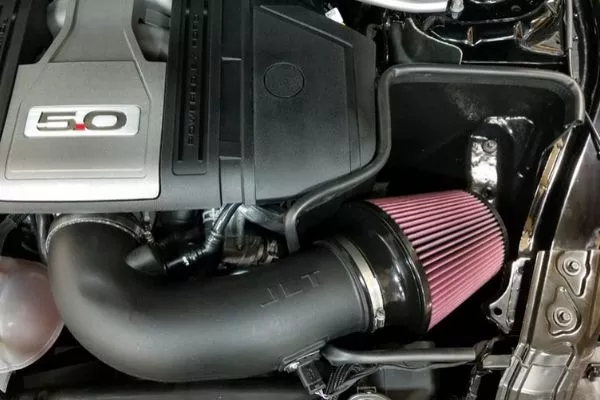
That's why some car enthusiasts install cold air intakes
In connection to your car’s engine, the warm, less dense air, is less efficient in providing it with the oxygen necessary for combustion.
Apart from this, warm air is also better at retaining water particles which will further worsen your engine’s efficiency in terms of burning fuel.
Another thing that’ll adversely affect your car’s power output is the air-conditioning system. You’ll tend to set your car’s AC on a higher setting on hot weather and that requires more energy from the engine.
>>> Read more: 4 common reasons why car engines lose horsepower over time
How to manage heat
Now we’ve established that heat and your car’s parts don’t mix. As such, you’ll want to address that by applying exhaust heat wrap. This insulated the heat generated by your engine headers and keeps the heat inside the exhaust to be quickly dissipated out.
Furthermore, the heat trapped inside the exhaust will cause the gases to move faster out of the car. This helps create a more efficient induction cycle, where air and fuel are drawn inside the combustion chamber.
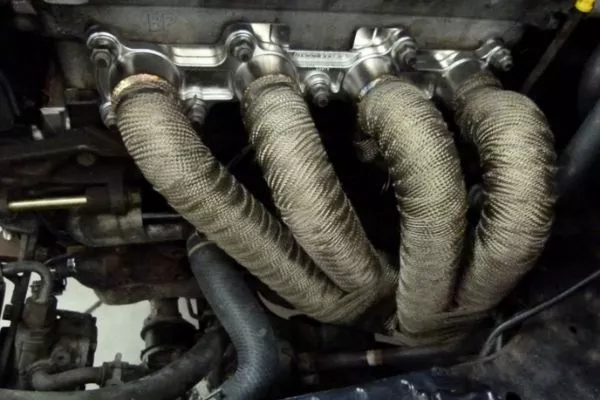
Exhaust headers wrapped in a thermal wrap
A more cost-effective way, however, is to follow your car manufacturer’s standard preventive maintenance schedule because this ensures your car’s fluids are at the right levels.
On top of that though, you also be checking that yourself daily. To make that easier for you, please our guide on the BLOWBAGETS mnemonic device.
If you found this guide more helpful, keep reading here on Philkotse.com.
Recent posts
- Deal with summer: Have you known all popular problems with cars in summer? Feb 22, 2020
- Top possible reasons your car battery discharges overnight Mar 17, 2021
- [Philkotse guide] Reasons and solutions for car leaky exhaust pipes Aug 16, 2022
- Step-by-step guide to check and replace a failing car radiator Nov 30, 2022
- 4 car exterior features need to protect in the hot summer Aug 09, 2022


